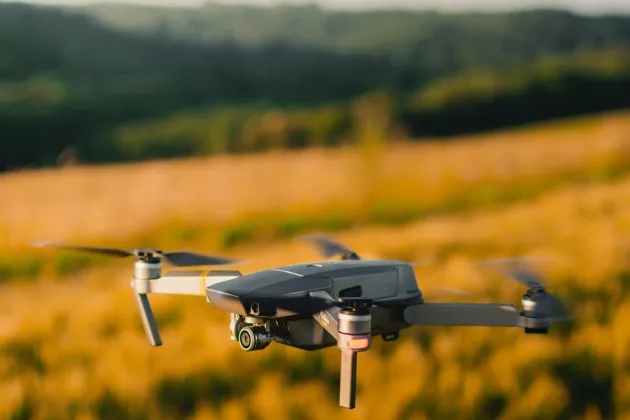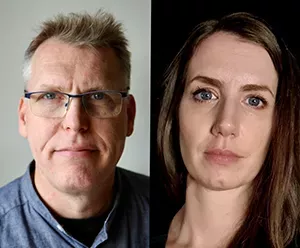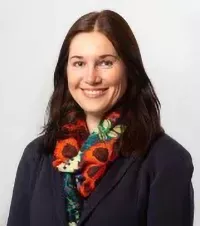Granted proposals receive funding up to 150 000 SEK. The assessment group consisted of eight people appointed by the Sustainability Forum and LU Innovation, with expertise in both the innovation process and sustainability challenges.
Sustainable Idea Exploration is a recurring call and opens for applications again spring 2025. It is funded by Lund University’s Sustainability Fund, which is run in a collaboration between LU Innovation, Sustainability Forum and LU Estates.
Projects granted funding
Forensic voice, speech and language analysis
Susanna Whitling, Department of Clinical Sciences and Andreas Jakobsson, Centre for Mathematical Sciences
The police possess a large amount of audio recordings of encrypted phone calls used in criminal investigations. Experienced speech therapists currently help the police to identify suspects using voice, speech and language analysis. The needs of the police are substantial and to scale operations, the project plans to combine expert assessment with AI-based speaker verification.
The project will receive funding to develop an AI service to aid sifting through the material provided by the police and combine this search with previous assessments.
Removal of short-chain perfluorinated alkyl substances (PFAS) from water by functionalised dendritic fibrous nanosilica
Man Zhang, Department of Chemistry
PFAS are widely used, long lasting chemicals, components which break down slowly over time. PFAS contamination of water sources poses significant economic, social, and environmental challenges globally. Current remediation methods face limitations in effectively removing short-chain PFAS from water, leading to continued exposure and potential health risks. The scope of the problem is vast, affecting millions of people worldwide who rely on contaminated water sources for drinking, agriculture, and industrial purposes. The project proposes to use the nano material Functionalized Dendritic Fibrous Nanosilica (DFNS) for the selective removal of short-chain PFAS from water instead of currently used activated carbon filtration. Leveraging DFNS's unique properties, including tunable particle sizes, high surface area, and hierarchical porosity, the hypothesis aims to develop a highly efficient and sustainable adsorbent material tailored for removing short-chain PFAS from water sources.
Efficient biodiversity monitoring using unmanned aerial vehicles
Arrian Karbassioon, Centre for Environmental and Climate Science
Ecological conservation efforts can only be implemented if species and habitat monitoring provide the information needed to make management decisions. However, ecological field studies are often limited by the cost of hiring experts to carry out monitoring tasks, including species identification. By using unmanned aerial vehicles (UAVs), we can capture the characteristics of large areas of land in less time and with minimal effort. They can be flown at different altitudes and under structures such as buildings and trees. UAVs flying close to the surface and equipped with high-resolution cameras can capture images at a scale of 1 cm per pixel, which is good enough to distinguish individual flowers. The project will compare remotely sensed images of flowering habitats with expert identification in the field across a gradient of eight semi-natural grasslands. The aim is to find out how each method performs as landscape complexity increases, to see if remote sensing is a cost-effective alternative to on-the-ground surveys of more complex environments.
Bio-waste utilisation to improve fire-retardancy of renewable wood-based insulating materials
Edita Garskaite, Department of Building & Environmental Technology
Wood-based insulation materials represent alternatives to conventional petroleum-based materials in terms of climate targets. They are durable, easy to work with and easily recyclable. They are also hygroscopic, meaning that they have the capacity to absorb and release a moderate amount of moisture without being damaged. However, their combustability is a disadvantage, which makes developing fire-resistant wood-based insulation products important. The project aims to further develop a novel method for retarding combustion processes based on the process of mineralization, and to determine and optimise its influence on fire behaviour. Bio-waste eggshells and ammonium salts will be used to produce the minerals. Thus, this project is also expected to open opportunities for reducing waste and contributing to a circular economy.
More information
Web page: Lund University Sustainability Fund | LU Innovation
Contact: Peter Franck | LU Innovation






